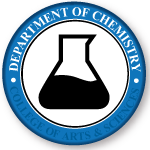Document Type
Article
Publication Date
1-27-2020
Publication Title
Journal of Advances in Medical and Pharmaceutical Science
Volume
21
Issue
4
First Page
1
Last Page
11
Abstract
Aims: To demonstrate the efficacy of aromatic hydrazide compounds to inhibit growth of Mycobacterium tuberculosis.
Study Design: To synthesize tuberculostats and test their antibacterial activity in-vitro.
Place and Duration of Study: University of Nebraska, Durham Science Center, 6001 Dodge Street, Omaha NE 68182, and Texas A&M Health Science Center, Department of Microbial Pathogenesis and Immunology, 8447 State Hwy 47, Medical Research and Education Building, Room #3012, Bryan, TX 7780. From March 2019 to October 2019.
Methodology: Hydrazide functional groups were formed by covalently bonding hydrazine onto a carbonyl carbon that is a substituent of a single aromatic ring. Microwave excitation was utilized for synthesis, followed by evaluation of antibacterial activity. These compounds were placed into tissue culture media at various concentrations and then Mycobacterium tuberculosis bacteria was added, in order to determine the level of growth inhibition. Growth inhibition of the bacteria was measured as a function of compound concentration versus growth inhibition.
Results: Compounds A, B, C, and D carry hydrazide groups as a substituent to a single aromatic ring. All four compounds show zero violations of Rule of 5, indicating favorable drug-likeness. All four compounds showed greater than 50% growth inhibition of bacteria at concentrations below 50 micrograms per milliliter. Growth inhibition was measured by colony forming units and luminescence. Polar surface area, Log P, molecular volume, and other molecular properties were determined for these four compounds.
Conclusion: These four hydrazide compounds induced substantial inhibition of bacterial growth. Microwave excitation for the synthesis of hydrazide compounds is effective. These compounds have favorable drug-likeness properties and are highly effective inhibiting the growth of Mycobacterium tuberculosis.
Recommended Citation
Bartzatt, R., Sule, P., Galbadage, T., & Cirillo, J. D. (2020, January 27). Aromatic Hydrazide Compounds that Inhibit the Growth of Mycobacterium Tuberculosis. Journal of Advances in Medical and pharmaceutical Science, 21(4), 1-11. DOI: 10.9734/JAMPS/2019/v21i430148
Creative Commons License

This work is licensed under a Creative Commons Attribution 4.0 License.


Comments
This is the accepted manuscript of an article published in the Journal of Advance in Medical and Pharmaceutical Science on January 27, 2020 and can be accessed through the doi: 10.9734/jamps/2019/v21i430148